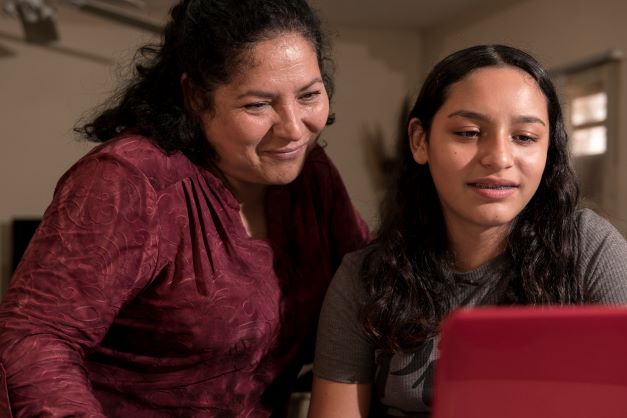- Behavior
- Parenting
Respecting family culture, while raising kids

In Spanish-speaking cultures, some parents value obedience and respect more. And Latino parents may see sass, back-talk, whining, name-calling, or making a face at an adult, as disrespectful. U.S.-born parents may be more likely to tolerate those habits.
“These cultural differences are significant. They must be respected on both sides,” said Renée Layman, president and CEO of the Center for Child Counseling.
1. HOW DO I HANDLE MOODINESS, DEPRESSION AND ACTING OUT AT HOME?
Embrace the family. Latino youths experience proportionately more depression, stress, anxiety, and delinquency than do non-Hispanic white youths, according to the NIH.
A positive outlook from parents on day-to-day activities helps. So does emotional stability — less yelling, Layman says. Talk out problems with friends and relatives. Recreational sports and social activities are helpful, as are making friends at local church or community programs.
2. HOW DO I RESPOND WHEN THEY SAY, "MY FRIENDS CAN DO THIS OR THAT?"
Compromise is the key, Layman suggests. “Both parents and their children must make an adjustment. Don’t come at the issue in a judgmental way. Be consistent.”
3. HOW DO I START A HELPFUL CONVERSATION WITH MY CHILD?
Despite their claims for freedom, children want structure from their parents, Layman says. “Structure makes children feel safe. If they do not feel safe, they will not thrive. Whether it be if they say their prayers at night or what time they must be home, children like ritual.”
Holding family meetings is a great way to start. These are not to set up rules, but to set up expectations — for parents and children. Talk to your children about what you expect, and what they expect. For example, ask them to show up for meals at a certain time without being called. And talk about consequences if those expectations are not met. Children need to feel a part of the process.
“Keep up the communication. It’s an ongoing process,” Layman encourages.
4. HOW DO I HANDLE SOCIAL MEDIA?
Engage children in limiting time and access on phones, laptops and computers. Every family must establish its own expectations according to their culture and age of their children.
“Children want to be part of the process. Let them help decide (for example) where the computer will be located in the house. Let them help you set expectations on what is age appropriate,” Layman says.
Some additional resources that may help:
Ways to Talk to Children - Center for Child Counseling
Three Ways to Stay Calm When Your Child Isn't | Early Childhood | PBS SoCal
SOURCES:
- Renée Layman, president and CEO of Center for Child Counseling
- Depression and Anxiety among First-Generation Immigrant Latino Youth: Key Correlates and Implications for Future Research - PMC (nih.gov)
